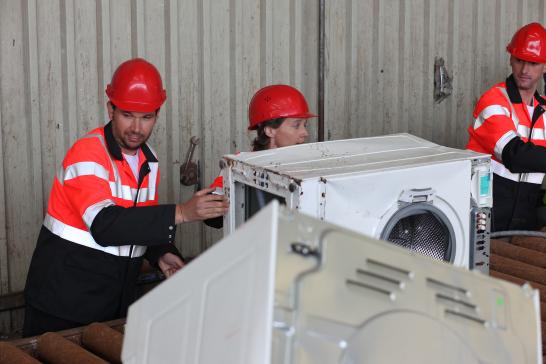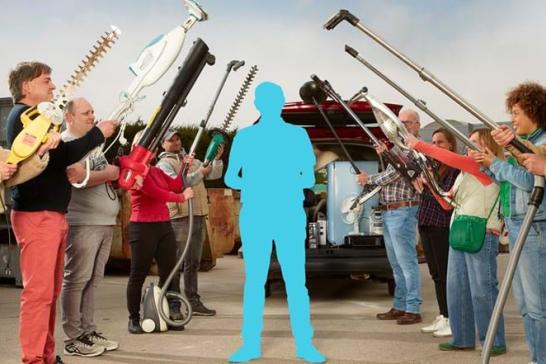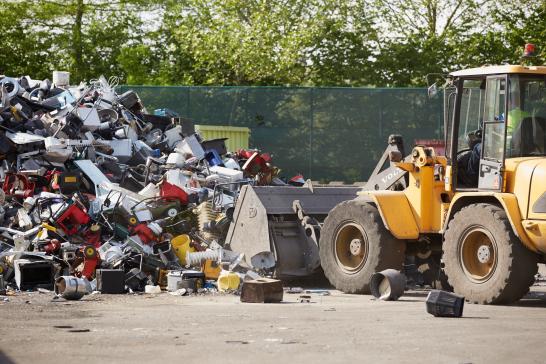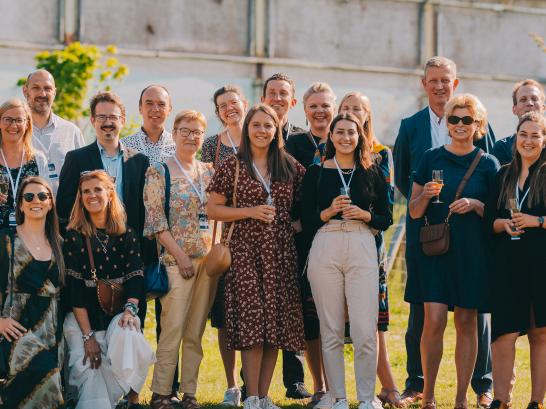
Our mission
A mission statement indicates the purpose of the organisation and its field of activity. It therefore answers the question: what does Recupel do?
“Recupel handles the collection and processing of used electricals and light bulbs on behalf of manufacturers. Together with our wide network of partners, we help encourage repair and reuse, as well as promoting top-quality recycling practices. By doing so, we hope to reduce society's dependence on raw materials and energy consumption.”
Our vision
A vision indicates the objectives an organisation is pursuing and the type of organisation it wishes to be. It is therefore an answer to the following question: what are Recupel's convictions?
“Together with our partners and consumers, Recupel is helping to create a more sustainable and circular society through the collection of electricals and light bulbs, giving them a second life where possible.”
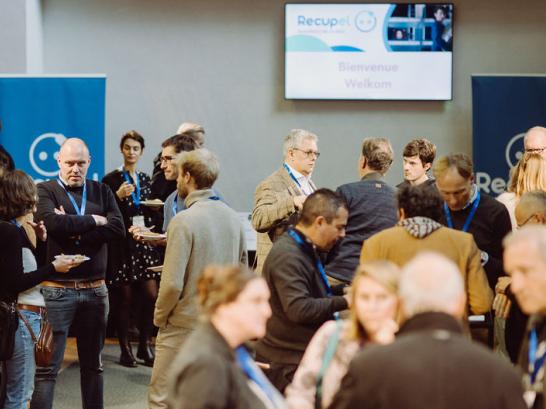
Recupel’s history: from 2001 to today
In 2001, manufacturers and importers of household electricals were given the legal obligation to collect and properly dispose of discarded appliances, also known as the ‘acceptance obligation’ or ‘take-back obligation’. This new obligation required smooth organisation, as it involves many different stakeholders. For this reason, some of them decided to join forces and found non-profit organisation Recupel. Today, we also benefit from the active involvement of our country’s respective regional governments, as well as from numerous other partners.
History - Structure
Originally, Recupel vzw was made up of several management bodies:
- BW- Rec - Large household appliances, professional large and small white goods and vending machinesRecupel
- AV - Home and professional audio-video appliancesRecupel
- SDA - Small household appliancesRecupel
- ICT - Computer, telecommunications and office equipment, professional ICT appliances and vending machinesRecupel
- ET&G - Domestic and professional (garden) electrical tools
- LightRec - Lighting and discharge lamps
- MeLaRec - Medical devices and laboratory equipment, sports equipment, thermostats, test and measuring equipment, blood glucose meters and domestic and professional smoke detectors
These 7 non-profit organisations, along with trade federations active in the electrical appliances sector, were the founders of the non-profit organisation Recupel. In turn, several trade federations were behind the seven sectors. These were Agoria, Fee (Techlink), Fedagrim, Imcobel, BeMedTech and Laborama.
In 2023, the structure was simplified, and the 7 management bodies merged into a single legal entity: the non-profit organisation Recupel. This simplification will make it possible to respond more effectively to the various challenges. The administrative body has 12 directors and several observers, including the Regions. The directors represent the producers and several manufacturers' and distribution federations. The General Assembly is made up of producers and importers affiliated to the Recupel asbl management body, and various manufacturers' and distribution federations.

